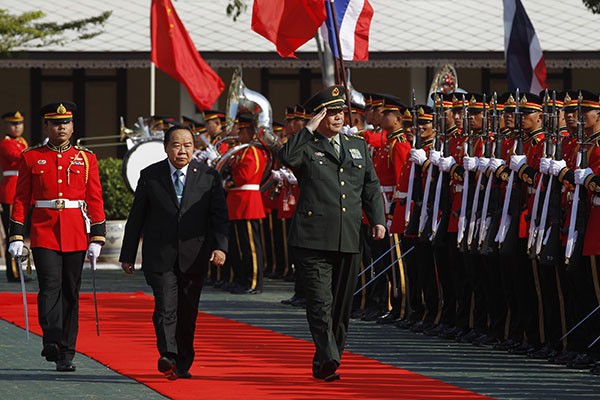China and Thailand agreed to strengthen military ties between their nations within the next five years. The move would see the two Asian countries share intelligence reports and fight transnational crimes within their scope.
The agreement was made during the two-day visit of China's Defense Minister Chang Wanquan to Bangkok.
Thailand's Defense Minister General Prawit Wongsuwan said: "China has agreed to help Thailand increase protection of its own country and advise on technology to increase Thailand's national security."
He added that "China will not intervene in Thailand's politics but will give political support and help maintain relationships at all levels." The defense minister said further that the agreement was all in line with China's policy.
Thailand and China's desire to boost their military ties comes in the wake of the United States' "pivot" to the region. Washington has expressed its commitment to strengthen ties and increase sales of equipment in the area.
The two leaders have also given the go-signal to undertake joint military exercises.
"We agreed to increase joint military exercises between Thailand's air force and China's air force and to increase overall military cooperation over the next three to five years," said Prawit.
The Southeast Asian nation's military took control of the government in May 2014 after months of political unrest spilled to the streets of Bangkok, which led to the ouster of Prime Minister Yungluck Shinawatra.
A long-time ally of Thailand, the United States has expressed opposition to the military junta's takeover and froze $4.7 million worth of security-related assistance.
Thailand expresses indignation with Washington's stand and accused its ally of meddling in their government's affairs.
China was keen to jump on the hole left by the deterioration of the U.S. and Thailand's relations. Beijing offered loans and infrastructure aid to its Southeast Asian neighbor to help increase its influence in the region.
The junta would remain in control for one more year and would hold a general election in 2016.



























